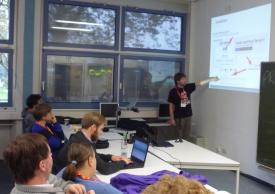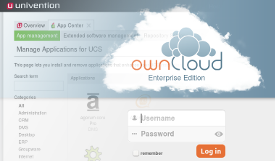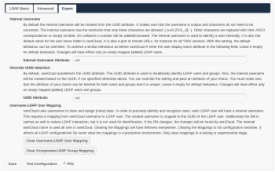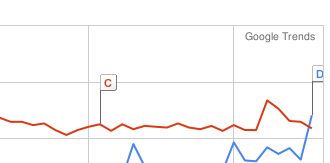Ubucon and ownCloud, ownCloud and Jolla/Sailfish
Submitted by blizzz
Photo: Dominik Wagenführ, CC-BY-SA
Last weekend I attended Ubucon, an Ubuntu user conference organized by the German Ubuntu community. I was giving a talk about, surprise, ownCloud. If you are interested in my talk, please find the slides in PDF on the program page. Beware, they are in German! Those who have seen my talk, please give your honest feedback on the Ubucon feedback page!
A detail that is not on the slides is that I was wearing my "I am the first one" Jolla T-Shirt (like this). It provoked the question about an ownCloud mobile client for SailfishOS. I want to answer it here as well.





